Martin Zapata Laguado, Medical Oncologist and Internal Medicine Physician at the National Cancer Institute of Colombia, shared some insights from EMUC 2025 on X:
“Exploring how to effectively integrate AI into daily clinical practice – and highlighting the need to help our patients better understand this technology.”

“Current evidence does not support population-based screening for kidney cancer – except in individuals with high-penetrance hereditary syndromes.”
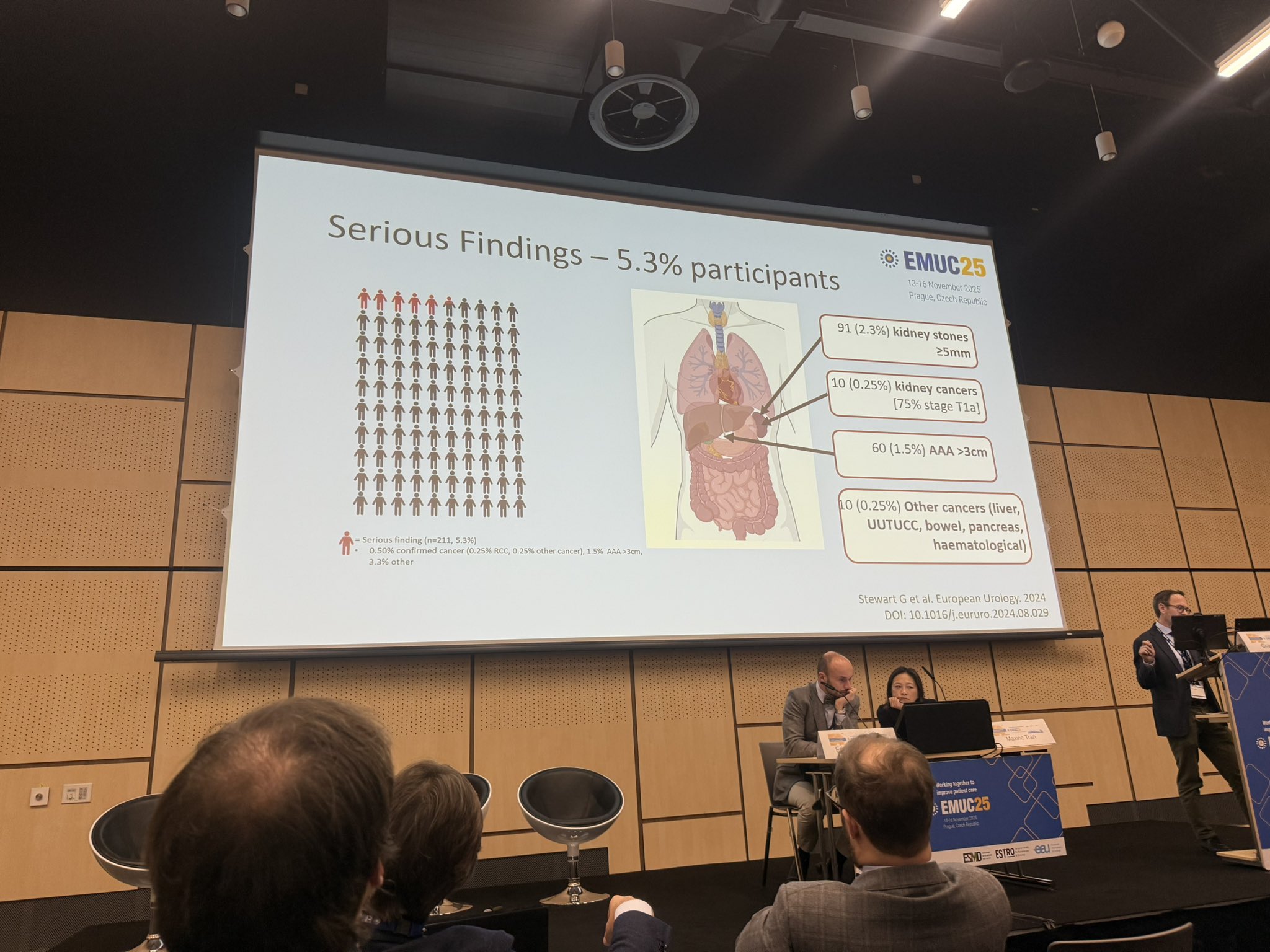
“Evidence does not support population-based screening for bladder cancer – dipstick testing is still under evaluation, and only symptomatic patients should follow a diagnostic pathway.”
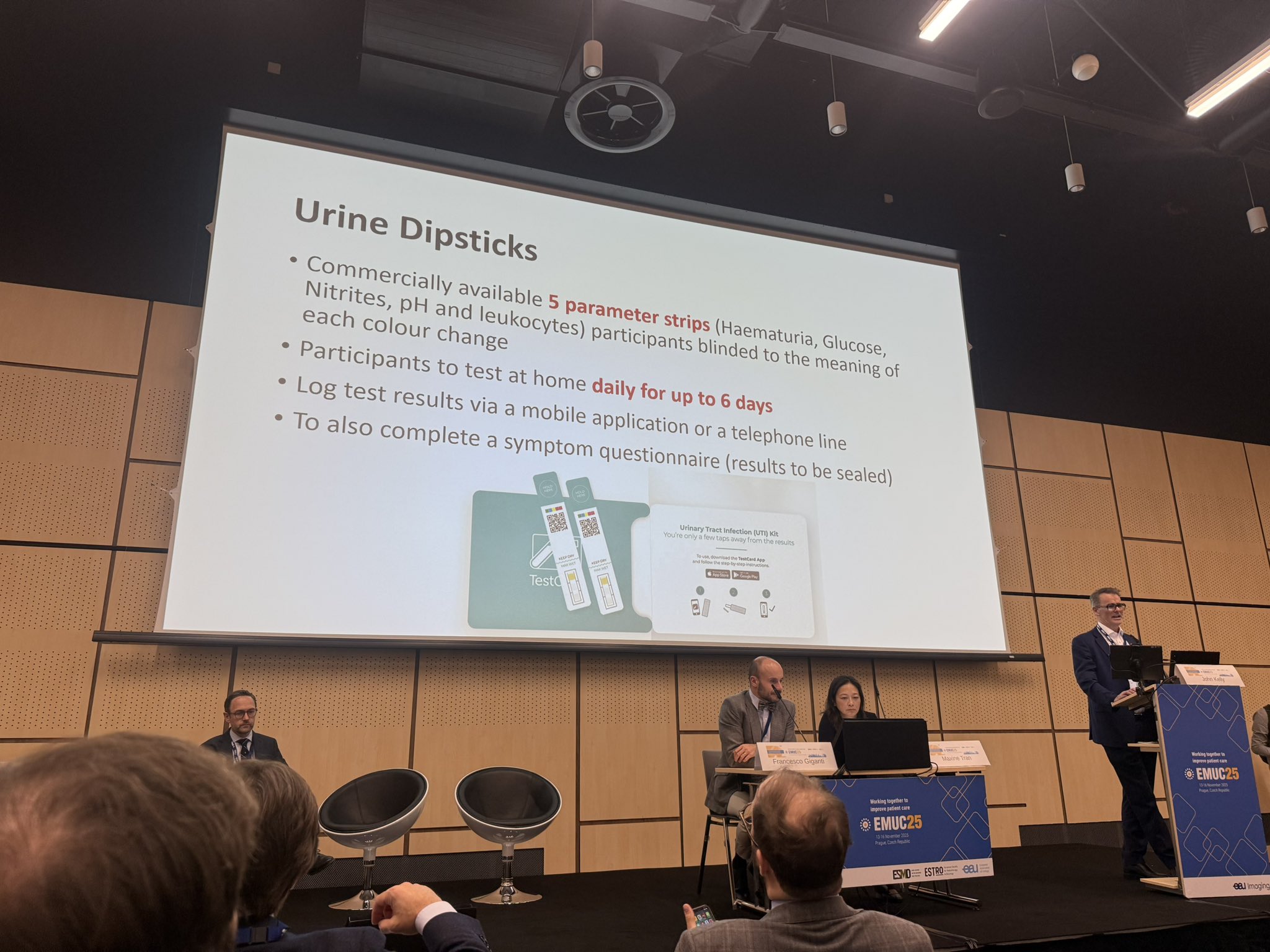
“Is there any chance to replace biopsy with an imaging-only approach? Not yet, in my opinion – we still need stronger evidence and nuclear imaging correlation.”
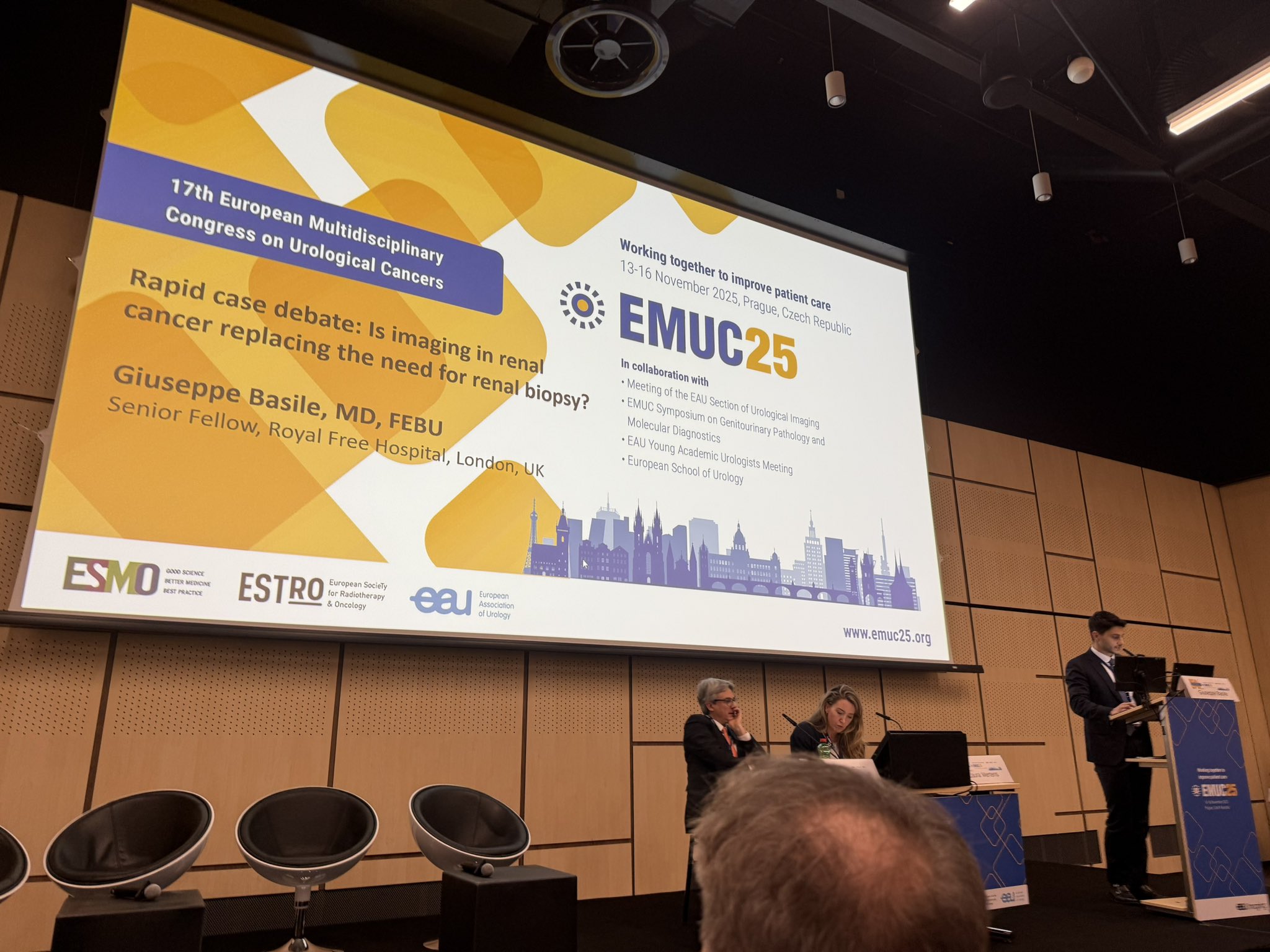
“CAIX imaging with ^89Zr-girentuximab correlates well in ccRCC, but tracer availability remains the main hurdle – similar results in FAPI-PET with promising data!”
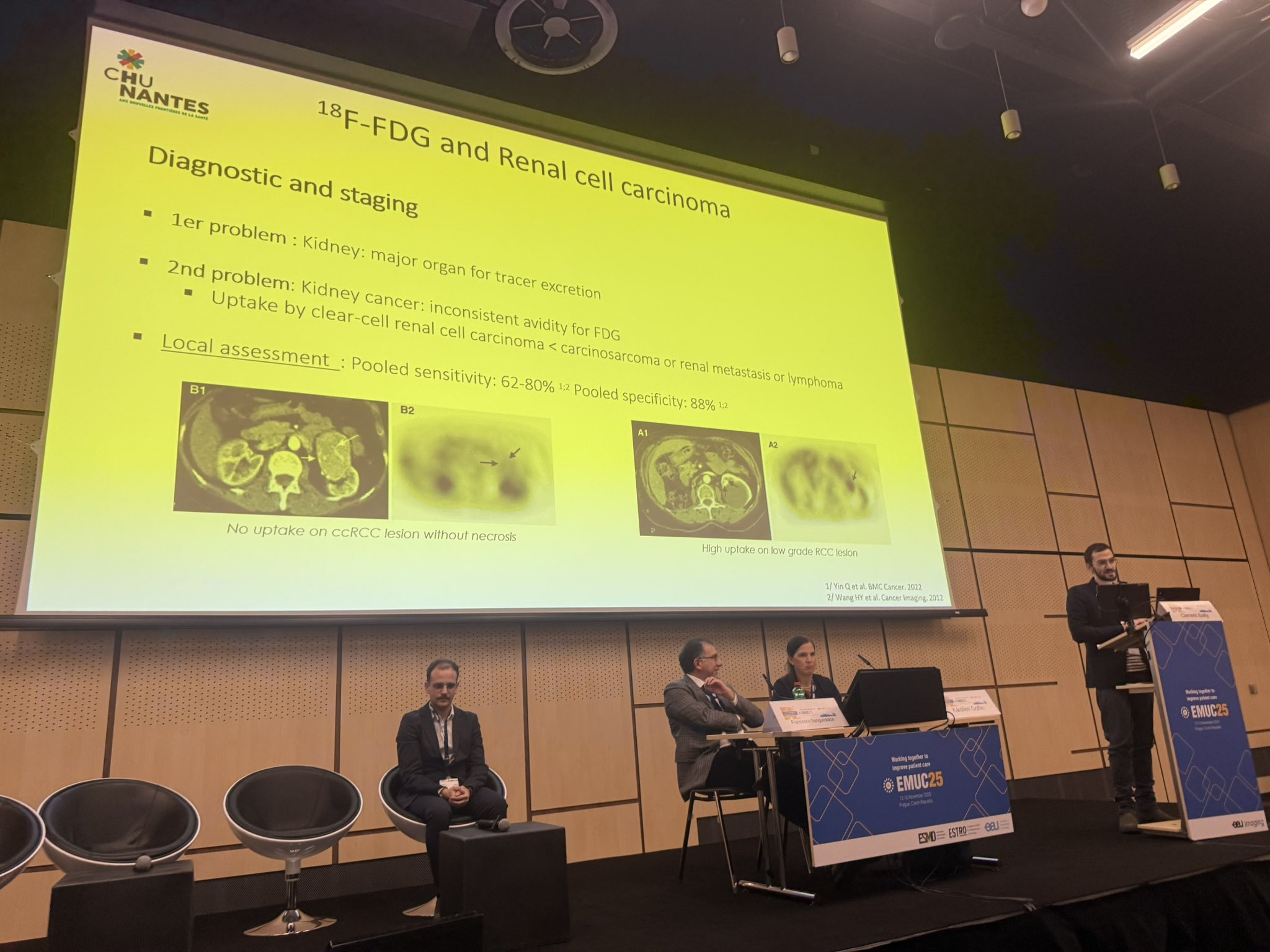
“Screening in prostate cancer remains essential. The next step will be risk-based, randomized trials to better target populations and optimize healthcare resources.”
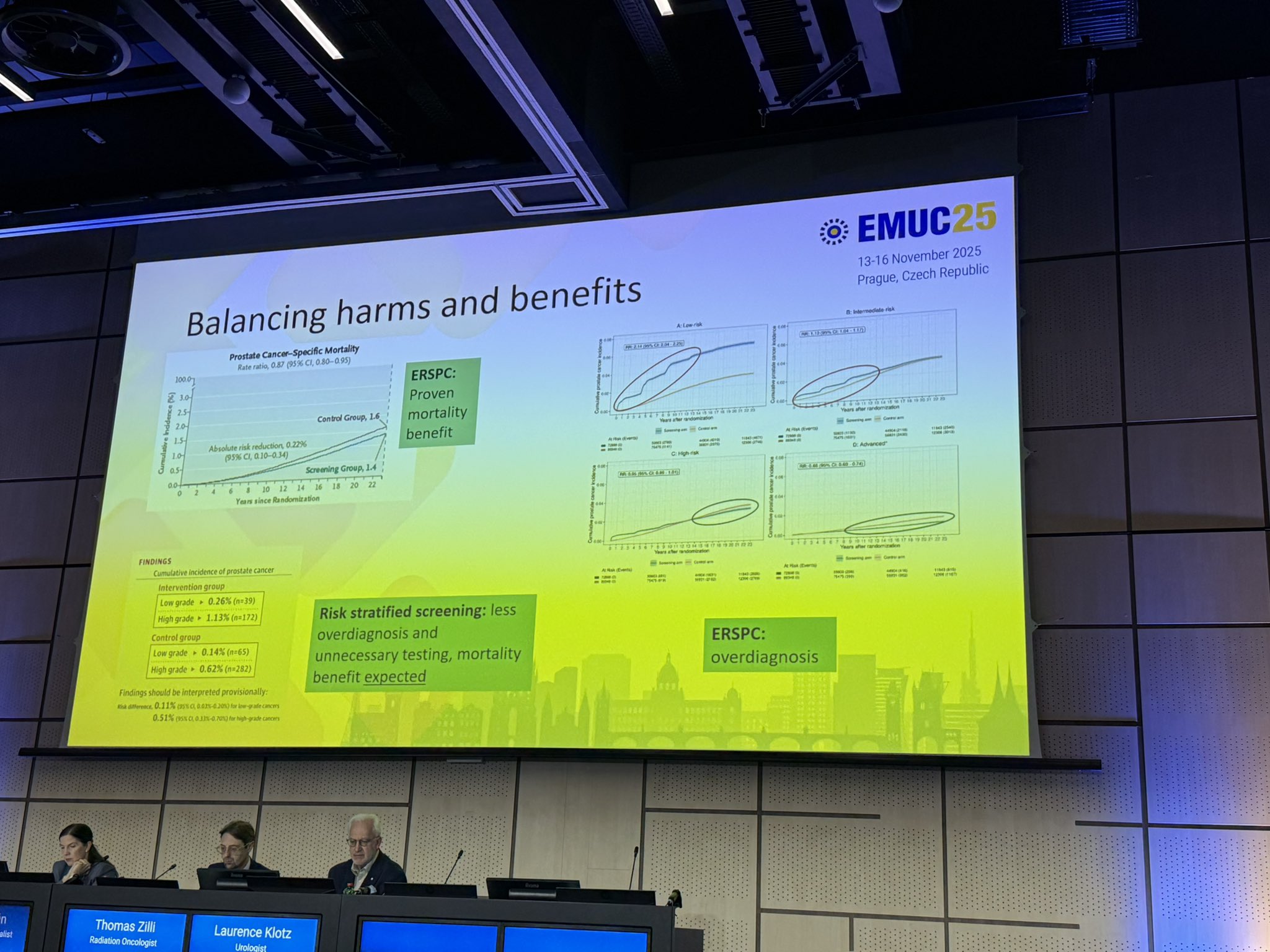
“Reducing carbon footprint and print waste in bladder and prostate cancer care depends on smarter resource use and optimising strategies.”
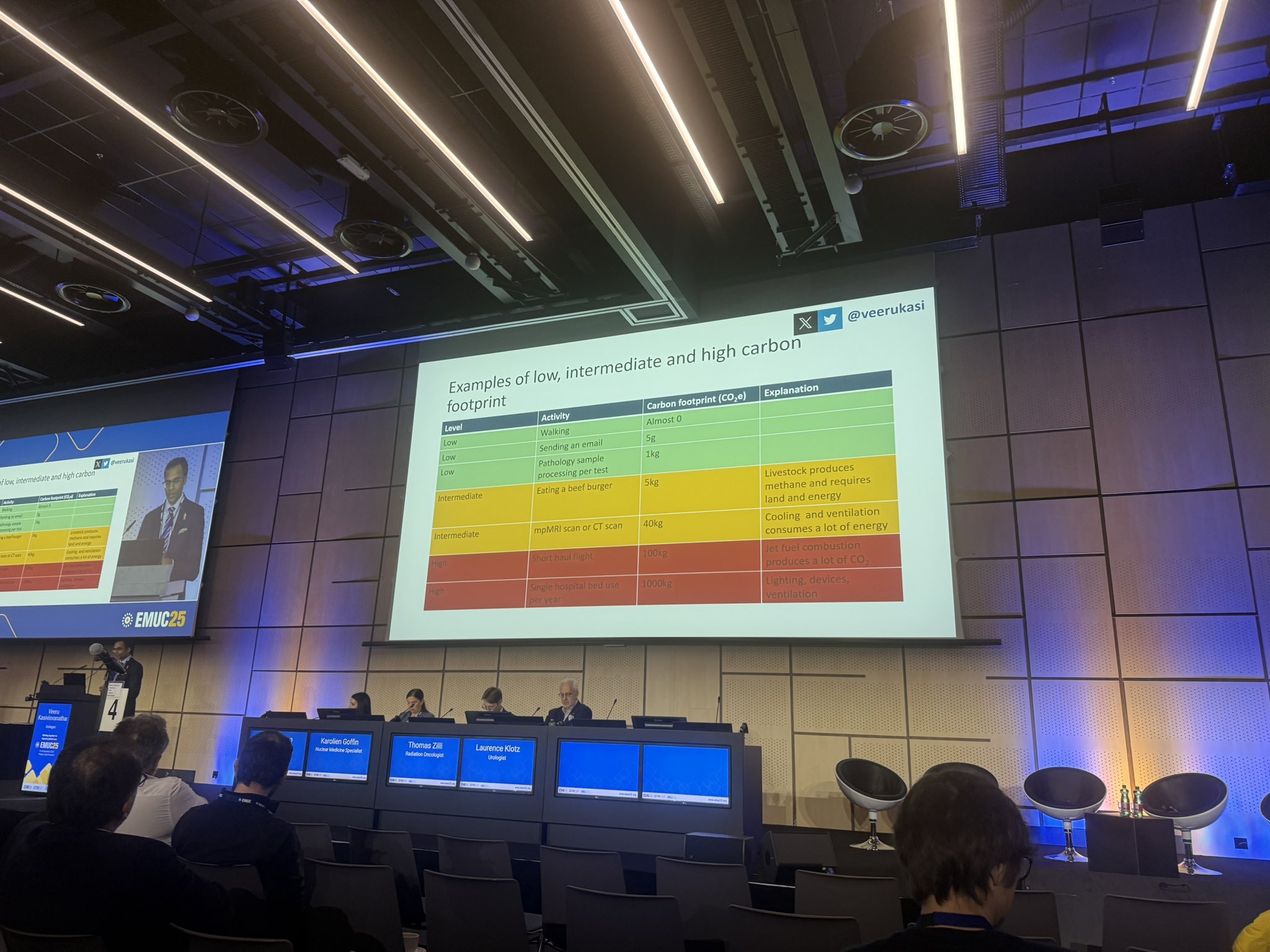
“Hypofractionation as a measure to help reduce the carbon footprint and improve sustainability in radiation therapy for GU cancers.”
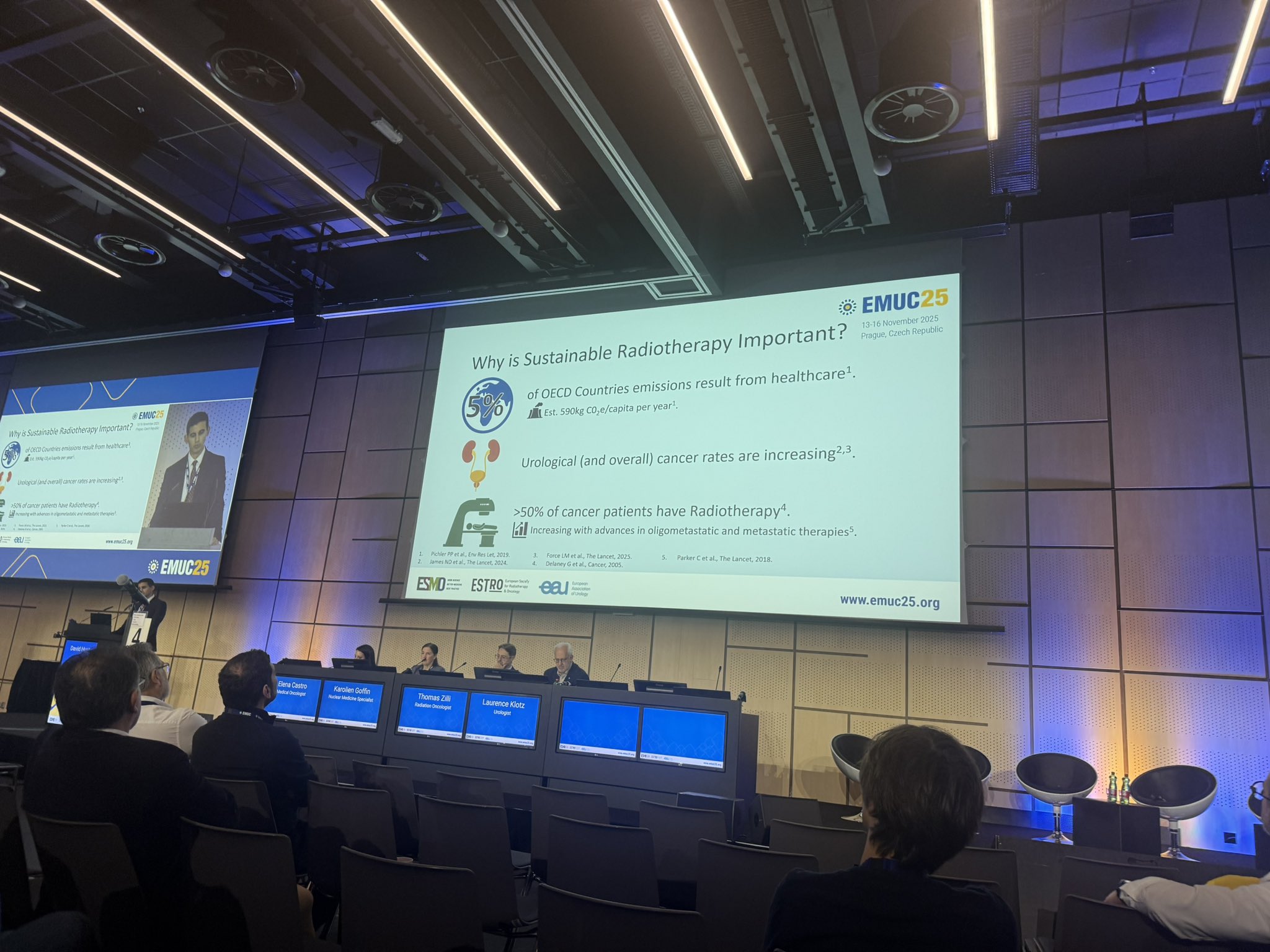
“Sustainability in surgery: small practice changes can meaningfully reduce carbon footprint and resource consumption.”
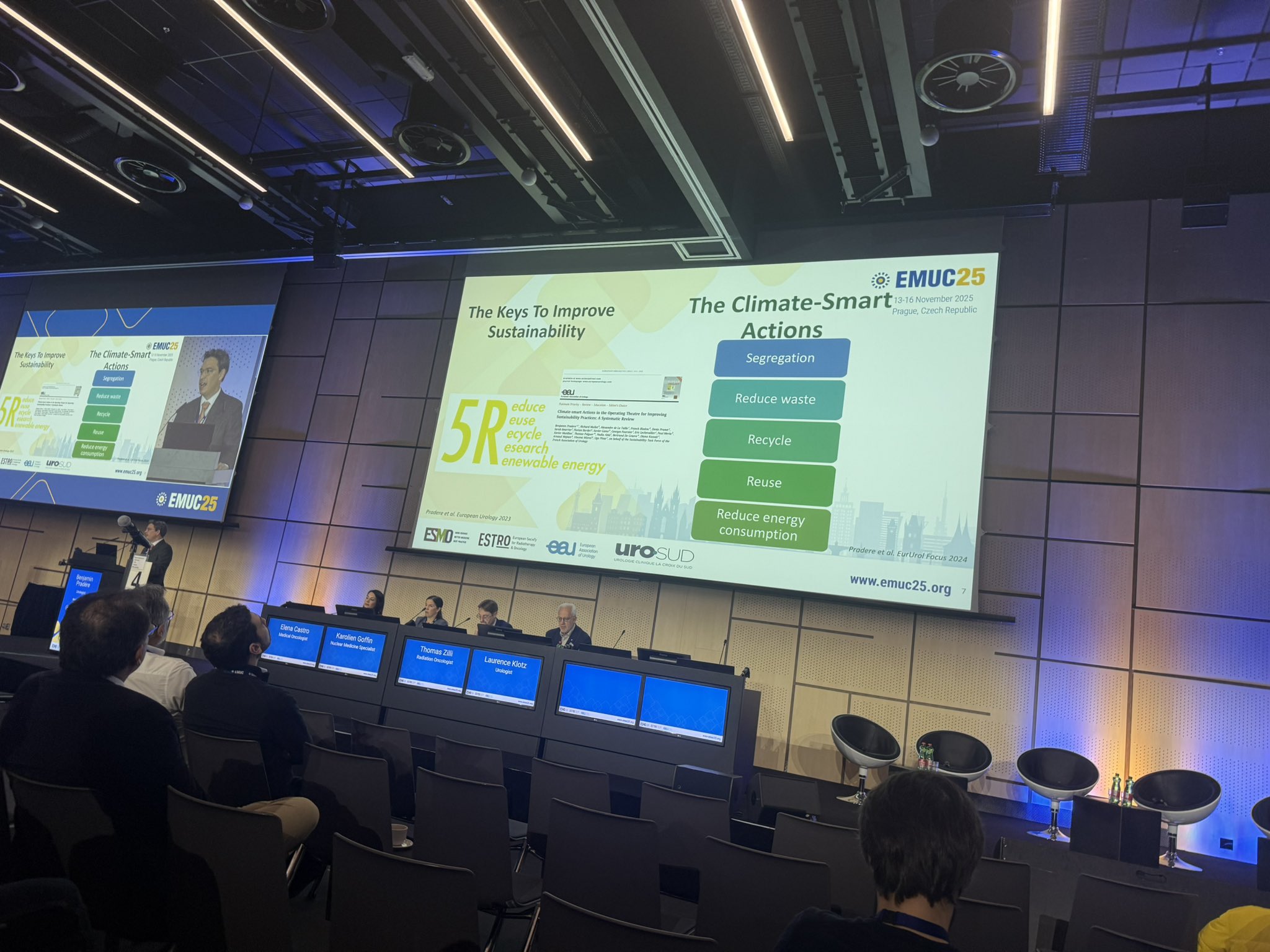
“Sustainability in oncology: biomarkers can guide personalization and therapy de-escalation, reducing mobility and resource use. Great talk by Yuksel Urun.”
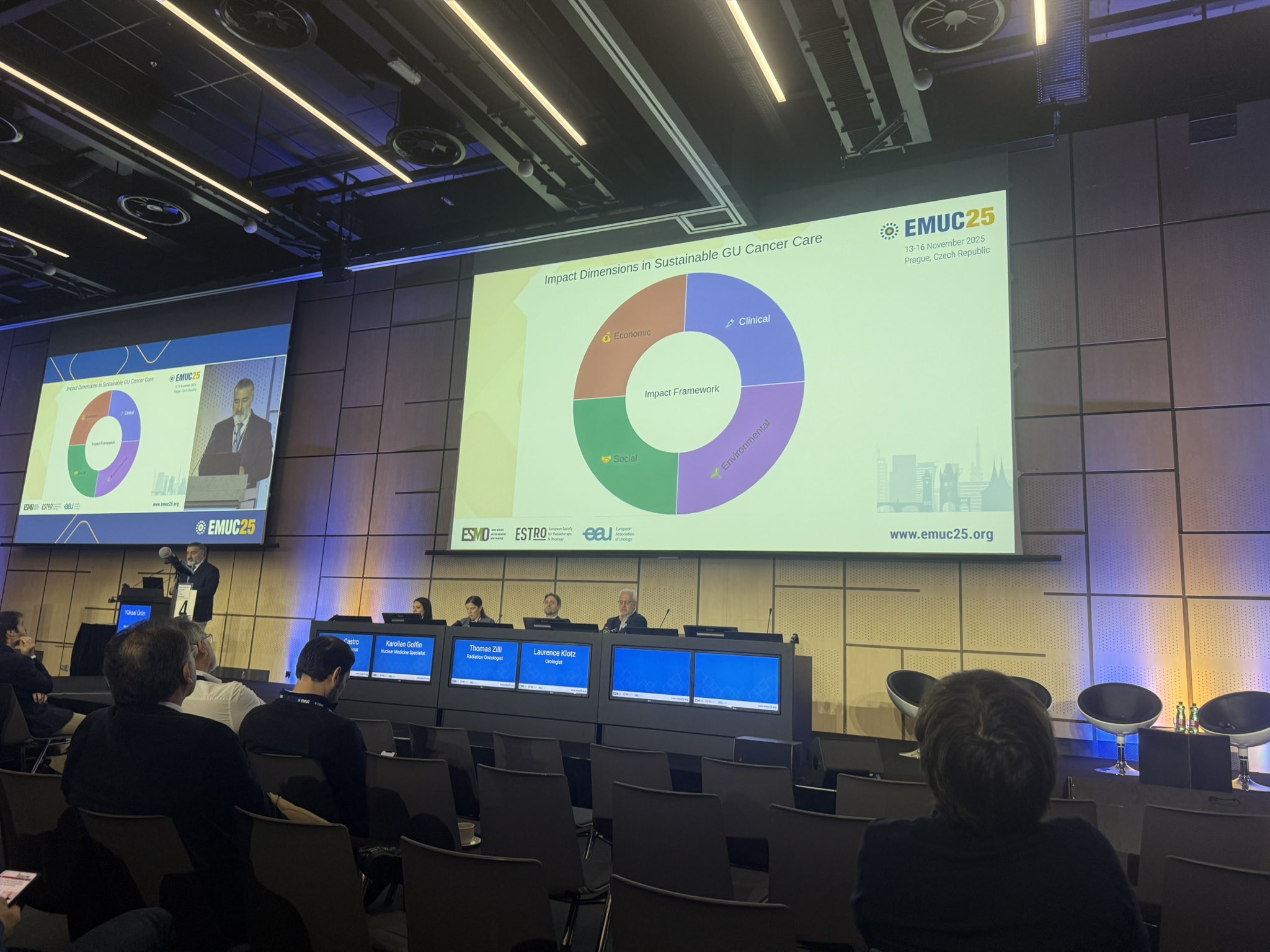
More posts featuring Martin Zapata Laguado on OncoDaily.


